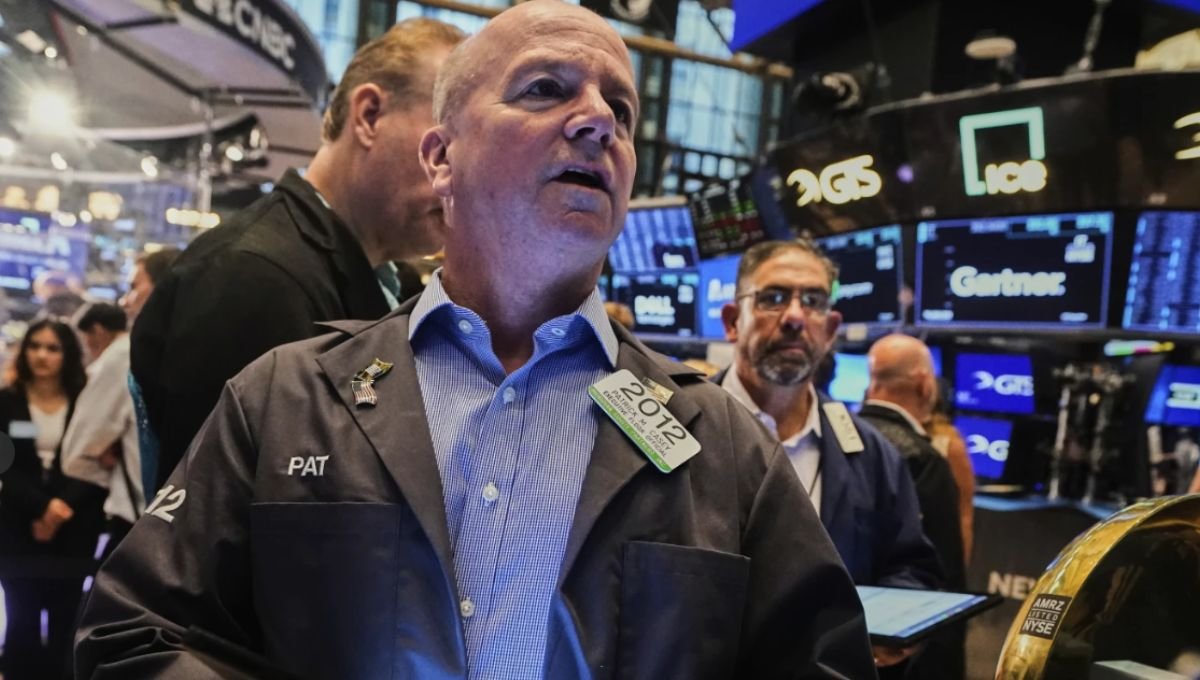Oil prices continued to fall sharply on Tuesday, while U.S. stocks edged closer to record highs. The market rebound is driven by optimism that the conflict between Israel and Iran won’t disrupt global oil supplies, despite signs that the recently announced truce is under stress.
The S&P 500 rose 1.2% in afternoon trading, building on earlier gains from markets in Europe and Asia. Investors were encouraged by President Donald Trump’s statement late Monday that Iran and Israel had agreed to a “complete and total ceasefire.” The S&P 500 is now within 1% of its all-time high from February, after suffering a nearly 20% decline earlier this spring.
The Dow Jones Industrial Average was up 518 points, or 1.2%, by midafternoon, while the Nasdaq Composite gained 1.5%.
Energy markets saw the most dramatic moves. U.S. benchmark crude oil plunged 5.4% to $64.82 per barrel, and Brent crude, the international benchmark, dropped 5.5% to $66.62.
Markets had been on edge throughout the Israel-Iran conflict, fearing potential threats to global oil supply. Iran, a major oil producer, could block the strategic Strait of Hormuz — a vital waterway for roughly 20% of the world’s daily oil shipments.
Oil prices started their downward slide Monday, after Iran’s limited retaliation didn’t appear to target oil infrastructure or disrupt transportation. Despite ongoing strikes beyond the ceasefire deadline on Tuesday, prices continued falling. Trump later insisted that the truce was “in effect.”
In fact, prices have now dropped below where they were before the fighting erupted nearly two weeks ago. According to Carsten Fritsch, a commodities analyst at Commerzbank, oil prices may fall even further if the ceasefire holds and oil-producing countries continue increasing supply.
Lower oil prices help ease inflation, potentially giving the Federal Reserve more room to cut interest rates. Cheaper borrowing costs are welcomed by Wall Street, as they support economic growth by making it less expensive for consumers and businesses to take loans.
However, lower rates also carry the risk of reigniting inflation — a key reason the Fed has been cautious in 2025, despite previous rate cuts in late 2024.
The central bank has been holding off on further changes, waiting to see how Trump’s tariff policies might affect both inflation and overall economic stability. While inflation has stayed just above the Fed’s 2% target, economic data remains mixed. On Tuesday, consumer confidence came in lower than expected, though other indicators suggest the economy is still holding up.
President Trump has repeatedly pushed for more rate cuts. Two of his recent appointees to the Federal Reserve have suggested they may support a cut as early as the next policy meeting.
Fed Chair Jerome Powell, however, remains cautious. In testimony to Congress on Tuesday, Powell said the central bank is in a good position to wait for more data before making any policy changes. When asked about a possible rate cut in July, he responded, “We will get to a place where we cut rates, sooner rather than later — but I wouldn’t want to point to a particular meeting. I don’t think we need to be in any rush because the economy is still strong.”
Bond markets reflected this uncertainty, with Treasury yields fluctuating. The 10-year yield slipped to 4.30% from 4.34% on Monday, and the 2-year yield — which is more sensitive to Fed rate expectations — declined slightly to 3.82%.
In the stock market, Carnival Corp. surged 6.7% after reporting stronger-than-expected quarterly earnings. CEO Josh Weinstein said last-minute bookings and onboard spending remain strong, prompting the company to raise its full-year earnings forecast.
Uber shares jumped 7.8% after announcing that users in Atlanta can now hail Waymo self-driving vehicles through its app.
Coinbase Global soared 11.4%, buoyed by a surge in bitcoin, which climbed back above $105,000.
Overseas, markets rallied in response to the ceasefire news. Indexes across Europe and Asia posted gains of over 1%. Notable moves included a 2.1% jump in Hong Kong and a 3% rise in South Korea.
Also Read:
U.S. Stocks Steady and Oil Prices Waver as Wall Street Stays Calm Following Strikes on Iran














